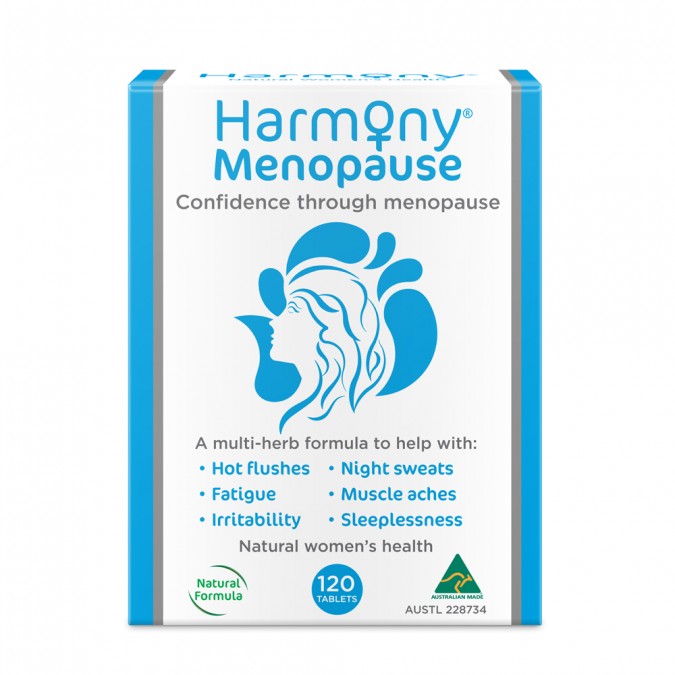What every woman needs to know about perimenopause
Article by Priceline Pharmacy

Most of us have heard about menopause. But if you haven’t reached an age when perimenopause can start to have an effect, how can you prepare for it? And if you have a feeling perimenopause is on the horizon, how can you best take care of yourself? We now know a lot more about perimenopause and its impact than in previous centuries when menopause was unofficially called ‘women’s hell’ or ‘the death of sex’. This time of life was also blamed for health problems from gout and epilepsy to hysterical fits and nymphomania. In the 19th century, women who went to a doctor for the symptoms of perimenopause may have been given leeches to help ease congestion in the genital area. Thankfully, understanding and treatment have come a long way since.
Perimenopause can last one year or 10
“Women usually go through perimenopause in their forties and on average it lasts between four and six years. But for some women it lasts one year and for others it can last up to 10 years,” says Dr Elizabeth Farrell, gynaecologist and medical director of Jean Hailes for Women’s Health. Perimenopause occurs when your ovaries start to run out of eggs, which disrupts the female hormones oestrogen and progesterone. This leads to a change in periods – they can become heavier, lighter, shorter or longer and some months you won’t have one at all.
Experts believe there can be as many as 34 different symptoms
As well as erratic periods, common symptoms include: hot flashes, disrupted sleep, depression and vaginal dryness. But researchers believe women can experience a range of other issues, including hair loss and something called ‘burning mouth syndrome’, where women feel a tingling sensation in their lips, gums and tongue. According to Priceline Pharmacist Jenna Cormack, other symptoms include night sweats, tender breasts, itchy skin or skin that feels like ants are crawling on it, tiredness, migraines, mood changes and weight gain as your metabolism slows down.
There is no test for perimenopause
“During perimenopause, hormone levels may be low one day and within the normal range the next. There’s currently no test that can determine when menopause will occur,” says Elizabeth.“If you’re experiencing symptoms like hot flashes and irregular periods, you are likely going through perimenopause.”
You might get brain fog
Some women report becoming easily distracted, losing concentration and forgetting names and small details. “The hormonal swings and roundabouts of perimenopause may be partly to blame,” says Jenna. “Brain fog may also be due to disrupted sleep and feeling stressed and anxious.” Finding ways to manage stress and being kind to yourself when you get distracted can help. Take a break and start focusing on what you were saying or doing again. Regular exercise is also believed to help boost the hippocampus – the part of the brain involved in memory and learning.
You might lose more hair than usual
Oestrogen and progesterone are important in the growing phase of hair – they help it grow faster and last longer. When these hormones start to decline, hair becomes thinner, grows more slowly, breaks more easily and we can lose more of it. Recent research from Thailand found that more than half of women experience hair thinning later in life, called female pattern hair loss. And as their crowning glory thins, women report increasing rates of low self-esteem, depression and anxiety.
Your sex drive might dip
Perimenopause can be associated with physical symptoms that affect interest in sex. Some women experience vaginal dryness and simply don’t feel like sex. Because it’s physically uncomfortable or painful, intimacy isn’t as enjoyable. Your GP or women’s health specialist can offer options to help overcome intimacy issues. Vaginal dryness that causes painful sex can be treated with vaginal oestrogen, for example.
You don’t have to go through perimenopause alone
Some 20 per cent of women have no menopausal symptoms and find the experience easy. “Sixty per cent have mild to moderate symptoms and the rest have symptoms so severe they significantly interfere with daily life,” says Elizabeth. “You don’t have to put up with symptoms. The most effective treatment is menopausal hormone therapy or MHT. There are also other treatments including natural therapies and medications – such as the pill. It’s important to eat well, be physically active, not smoke or drink too much alcohol and to take care of your emotional wellbeing.”



